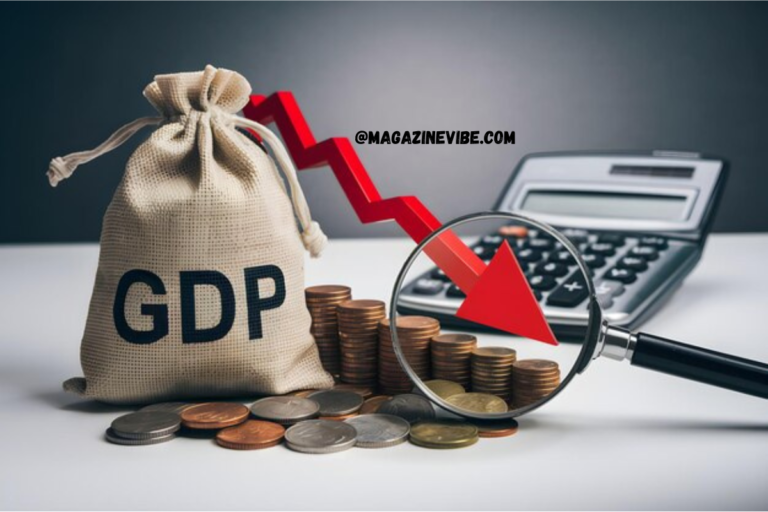Introduction to the Term ‘GDP’ and its Context
Gross Domestic Product (GDP) is the total value of goods and services a country produces in a specific time. It helps measure how well a country’s economy is doing. A higher GDP means a strong economy, while a lower GDP shows weak growth.
Deleted scene and e355 may refer to parts of economic data or sectors left out when calculating GDP. Sometimes, data is missing or not counted, which can make the GDP incomplete. When sectors or data, like e355, are left out, it can lead to an inaccurate GDP report. This affects how people see the economy.
Understanding ‘Deleted Scene’ in Economic Terms
In economics, the term deleted scene can mean missing or excluded data when calculating important measures like GDP. This could happen when some economic activities or sectors are not counted, either because the data is hard to collect or it was simply overlooked.
A deleted scene might refer to sectors like informal work, small businesses, or industries that don’t fully report their activities. It can also involve areas where data was not recorded properly.
When these deleted scenes are left out, the final GDP calculation becomes less accurate. This incomplete data can give a wrong view of a country’s economic performance, making the economy look stronger or weaker than it really is.
The ‘E355’ Concept: What Does it Represent?
The term e355 might refer to a specific code or category used in economic studies. It could represent a certain sector or type of data that relates to GDP calculations. Understanding what e355 stands for can help in analyzing its impact on the economy.
In a broader context, e355 could be important for measuring economic activity in certain industries. For example, if e355 relates to technology or services, it could show how these areas contribute to GDP.
Each industry may have its own version of e355, linking it to specific economic activities. This can help policymakers understand where to focus their efforts to boost economic growth.
Case Studies: Real-World Examples of Missing Data in GDP
Historically, there have been cases where important data was left out of GDP calculations. For example, in some countries, informal sectors like street vendors were not counted. This omission can lead to a distorted view of the economy.
These omissions can have serious consequences. They can affect government policies and decisions. If a country’s GDP appears higher than it is, policymakers might not invest in areas that need support. This can lead to economic imbalances and missed opportunities for growth.
Impacts of Deleted Data on Economic Forecasting
Missing or excluded data can change economic forecasts significantly. If certain sectors are not counted, predictions about future growth may be incorrect. This can lead to poor planning and investment decisions.
Comprehensive data is crucial for accurate GDP measurement. It helps create a clearer picture of economic health. When all data is included, forecasts become more reliable, allowing better decision-making for the future.
Methods for Handling Deleted or Excluded Data
Economists use various techniques to manage missing or deleted data in GDP reporting. One common method is statistical estimation, where missing values are predicted based on existing data. Another technique is using surveys to gather information directly from industries that may not fully report their activities.
Governments and organizations work to ensure accurate GDP measurement by improving data collection methods. They may implement better reporting systems or require businesses to provide more detailed information. Training staff in data collection can also help minimize errors.
The Role of Technology in Modern GDP Calculations
Data analysis tools and artificial intelligence (AI) play a key role in identifying gaps in economic data. These technologies can analyze large datasets quickly, finding missing information that may affect GDP calculations. They help economists spot trends and make more accurate forecasts.
Innovations like blockchain and real-time data collection can help prevent deleted scenes in future GDP reports. These technologies ensure that data is recorded accurately and promptly, reducing the chances of missing information.
Economic Policy Implications
Governments often respond to missing or incomplete GDP data by adjusting their economic policies. If they recognize that certain sectors are not represented, they may focus on improving data collection in those areas.
Incomplete GDP figures can affect various policies, such as tax decisions and government spending. When GDP appears lower than it should, it can lead to reduced investment in important sectors, affecting overall economic growth. Accurate GDP data is essential for making informed fiscal decisions.
Conclusion
Accurate and complete data is crucial for calculating GDP. When all economic activities are counted, it provides a true picture of a country’s economic health. Missing information can lead to misunderstandings about growth and development.
Looking ahead, GDP reporting is likely to improve with advancements in data collection. New technologies will make it easier to gather and analyze information from various sectors. This could help reduce deleted scenes in future reports, leading to more reliable GDP figures. As methods continue to evolve, we can expect a clearer understanding of economies worldwide.
FAQs
Q. What is GDP?
GDP stands for Gross Domestic Product. It measures the total value of all goods and services produced in a country over a specific time period. It is used to gauge the health of an economy.
Q. What does ‘deleted scene’ mean in economics?
In economics, a deleted scene refers to missing or excluded data that can affect GDP calculations. This could mean certain sectors or activities were not counted.
Q. What is ‘e355’ in relation to GDP?
E355 might represent a specific code or category used in economic studies, possibly linking to a sector or type of data relevant to GDP.
Q. How do missing data impact GDP calculations?
When important data is missing, it can lead to an inaccurate GDP report. This may give a misleading view of the economy’s strength or weakness.
Q. What methods are used to handle missing data in GDP reporting?
Economists may use statistical estimation or surveys to gather missing information. Governments also work to improve data collection systems.
Q. How is technology changing GDP calculations?
Data analysis tools and AI help identify gaps in economic data, making GDP calculations more accurate. Innovations in technology can also prevent missing data in future reports.
Q. How do governments respond to incomplete GDP data?
Governments may adjust their economic policies based on incomplete GDP figures. This can affect decisions on spending, taxation, and investment in various sectors.


